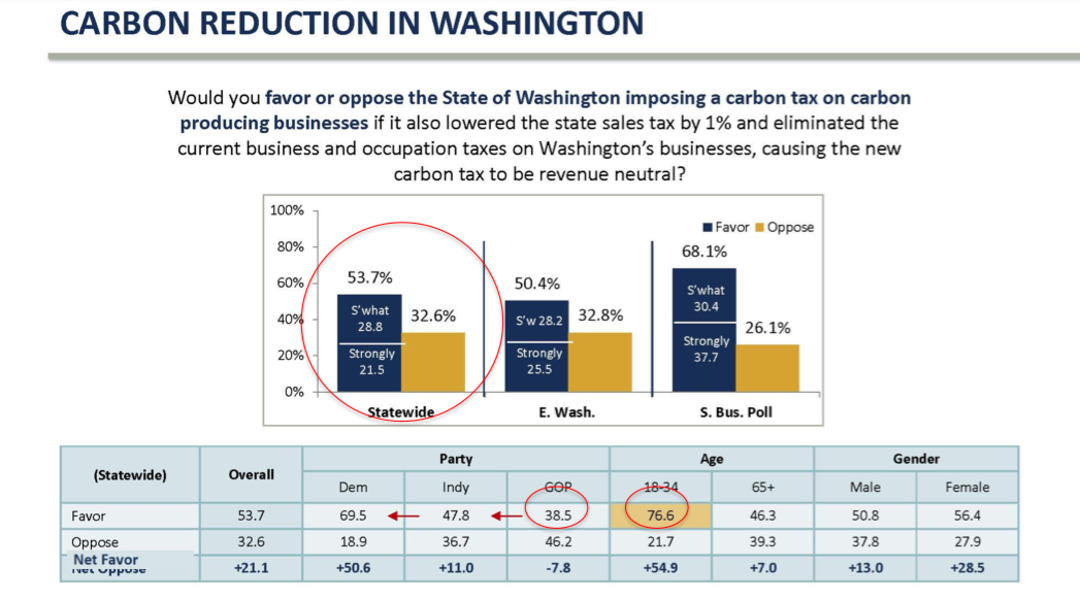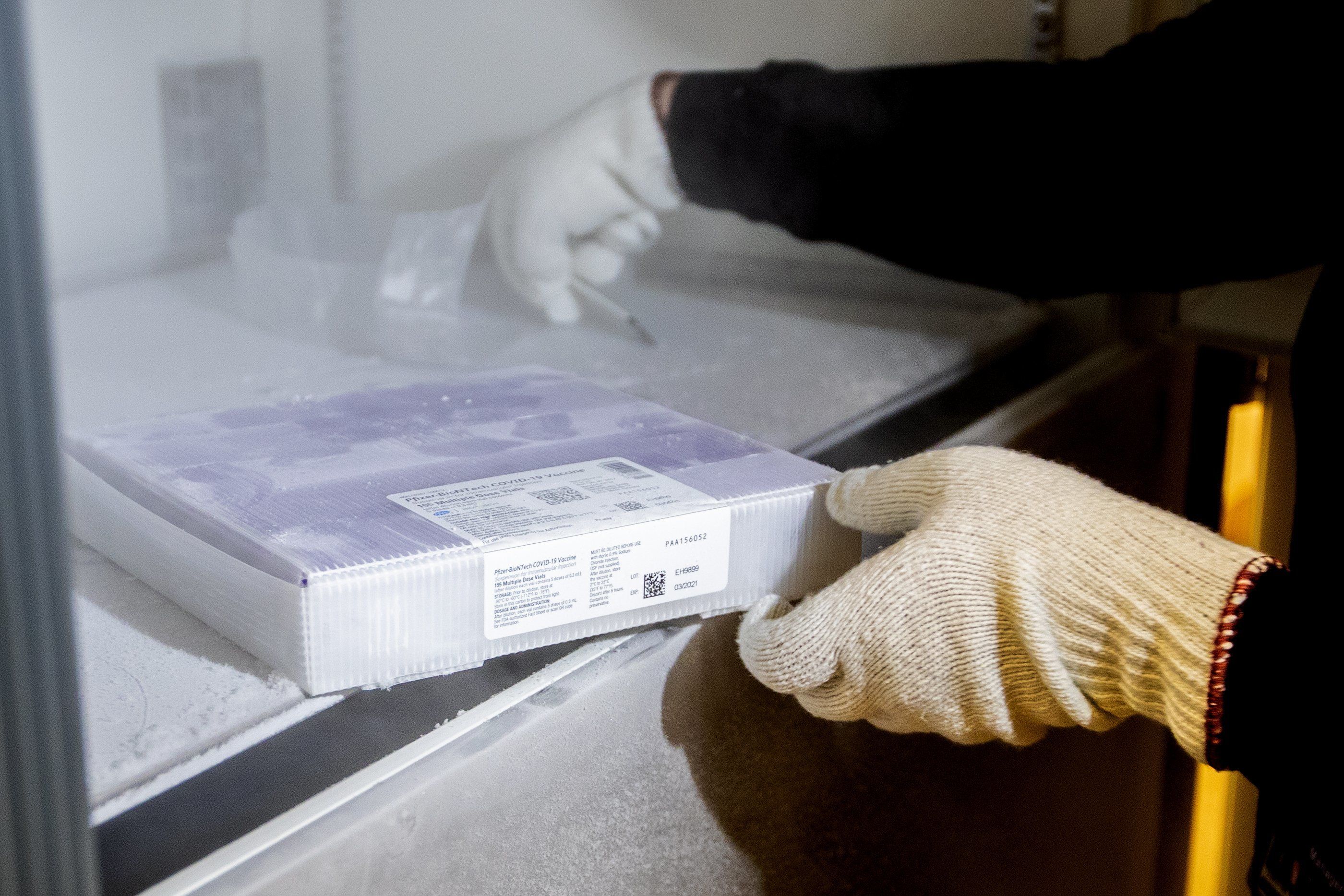Inslee Says Carbon Cap Still in Play, Polling Says...
The Democrats in the legislature have criticized the Republicans for not taking climate change seriously. The main example: Democrats describe the GOP provision in the senate transportation package that prevents governor Jay Inslee from enacting low-carbon fuel standards as "a poison pill." And, the Democratic house, about to release their counter transportation package, will strip out the poison pill.
But another major green Inslee initiative, his $1 billion cap and trade proposal, was left on the budget cutting room floor—by the house Democrats. (The GOP-controlled senate left it out of their budget too.)
Inslee had proposed a $12 chit per-ton per-year on the state's biggest polluters (factories that emit 25,000 metric tons of GHG per year). Increasing the cost of carbon production, the Inslee plan, part of his own budget proposal, ratcheted down the available chits from current estimated 94 million metric tons of CO2 until there are only enough left for 44 million metric tons total in the statewide system by 2050.
However, the Democrats did not include it in their budget proposal this month. House environmental committee chair, liberal green state representative Joe Fitzgibbon (D-34, Burien, West Seattle) says the house is still working with fellow Democrats who had questions about the plan "to get agreement on something we can move forward on and have [as] part of the final budget negotiation."
He explained that "enough members of our caucus weren't sure about the policy that we didn't have consensus to move it forward. We needed 50 votes for any of the revenue in our budget."
"They could replace the B&O tax in their proposal with carbon money." —Inslee spokesman David Postman
Fitzgibbon tells me there was more "comfort" with the B&O increase "because we've done it before."
About $532 million of the $1.2 billion in additional revenue in the Democratic budget proposal to help pay for K–12 education without making harsh cuts elsewhere, comes from reinstituting a B&O surcharge on service industries such as lawyers and financial advisors. The B&O surcharge had been in place during the recession (it expired in 2013) to offset a rebate for small businesses and generate much-needed emergency revenue.
Governor Inslee's communications director David Postman says, "they [the Democratic house caucus] couldn’t quite get where they needed to include it [Inslee's cap and trade bill] in the budget proposal, though by all indications it had a lot of support in the caucus."
Nothing's ever dead as the two chambers try to strike a final and deal and the governor's office hasn't given up hope on the cap and trade bill. Postman noted that there's now a Democratic house working group that includes bigwig house speaker Frank Chopp (D-43, Wallingford) [true] that's committed to "keep working the bill internally to address whatever concerns remained. If they can do that, they could replace the B&O tax in their proposal with carbon money."
Postman concluded: "We would have liked it to be in the original proposal. But we are pleased that there has been strong and vocal commitments from house leadership to keep working the bill. And I can tell you that they are, in fact, working hard on it with leadership from the speaker." The bill is "still in play," Postman says.

Meanwhile, a group called Carbon Washington is busy collecting signatures for I-732, a $25-per-ton carbon tax they hope to put on the ballot in 2016 in case Inslee's cap and trade plan doesn't actually go forward. Referring to his group as "the relief pitcher" Carbon Washington spokesman Yoram Bauman told me: "The mainstream enviro groups are still pushing for it [Inslee's cap and trade plan] to be part of budget negotiations. Those of us with Carbon Washington are busy doing our own thing as the 'relief pitcher.'"
He said his group isn't part of the lobbying effort for Inslee's plan "not because we’re opposed to it, but because the relief pitcher doesn’t spend all their time cheering on the starting pitcher."
53.7 percent, said they support a carbon tax if offset by lower income and business taxes.
Asked if calling for a relief pitcher for the governor wasn't something of a dis, Bauman said: "We’re on the same team. Is it a ding on Felix [Hernandez] when Fernando Rodney warms up in the bullpen? No."
Carbon Washington cited Gallatin group polling from late November that found:
"While there may be a political challenge in Olympia, a majority of likely voters, at 53.7 percent, said they support a carbon tax if offset by lower income and business taxes, while only 32.6 percent are opposed. A California-style cap-and-trade approach to carbon reduction also received a plurality of support at 51.4 percent, with 38.5 percent opposed."
While 54 percent isn't great (you typically need to start polling above 60 percent, according to political know-it-alls, to survive a negative campaign), an encouraging number for Carbon Washington is that Gallatin's poll showed 76.6 percent support from 18 to 34 year olds.
Bauman says that's the positive about going to the ballot in November 2016 when presidential turnout is likely to include more young voters than in off-years.




